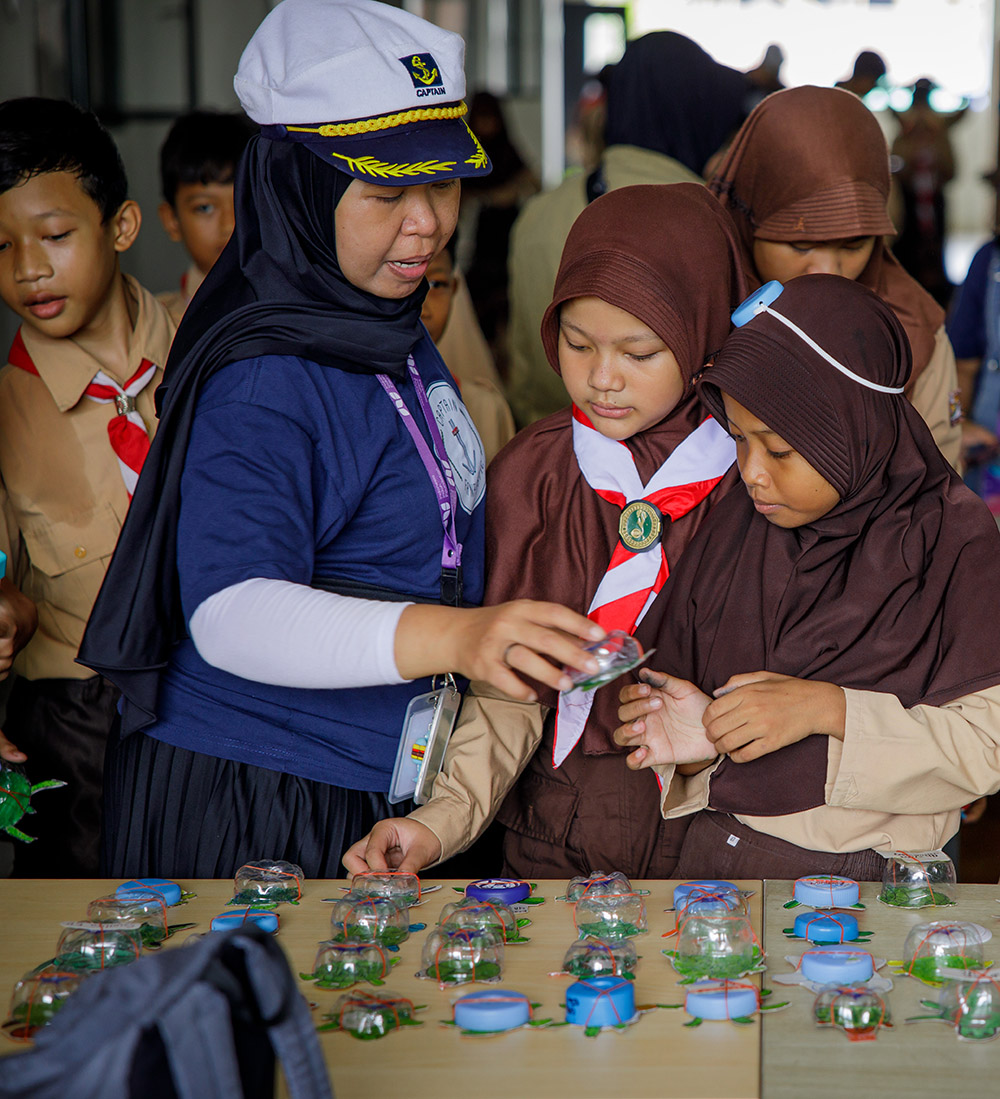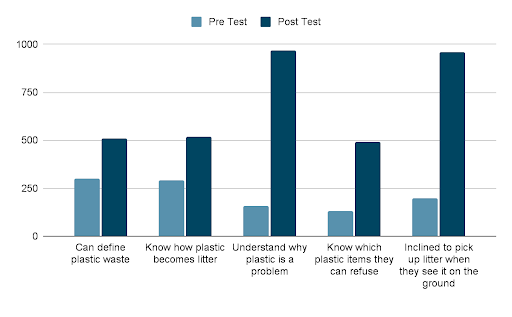our
Vision
We aim to build a society of active citizens that demonstrate compassion towards the environment and apply circular thinking during their lifetime. Our three key focus areas with respect to the United Nations’ Sustainable Development Goals are:

Education
SDG 4.7 By 2030, ensure that all learners acquire the knowledge and skills needed to promote sustainable development, including, among others, through education for sustainable development and sustainable lifestyles.

Reduction
SDG 14.1 by 2025, prevent and significantly reduce marine pollution of all kinds, particularly from land-based activities, including marine debris and nutrient pollution.

Circularity
SDG 12.5 By 2030, substantially reduce waste generation through prevention, reduction, recycling and reuse.
our
Metrics of success
Captain Fanplastic reports on its impact by looking at four key drivers. Within our teaching environmental empathy driver we look at our stories of change. Analysing the number of schools & communities, learners, and teachers reached with environmental education. Via behavioural research we also study the potential attitude change of our audience.
Secondly, we enable schools to manage waste and track data on the amount of litter taken out of the environment, the number of recycling systems installed, kilograms of waste re/upcycled and the monetary value generated in schools and communities from waste (e.g. trash4cash).
Additionally, Captain Fanplastic promotes a reading and writing culture by distributing environmental literacy materials to schools, teachers, learners and the public. We have developed numerous SDG aligned materials like books, ebooks & audiobooks.
Lastly, through our activities we aim to create opportunities in the circular economy. We monitor the amount of jobs created and extra income through gig work. Furthermore, we look at the revenue generated post-programme by our recycling and upcycling partners.

Behavioural Change

Based on our pre- and post-programme behavioural research we assume that our engaged learners over a lifetime will use 15% less plastic and manage it better overall. See sample of 1000 learners in diagram on the right.
Taking into account our Big Hairy Audacious Pirate Goal of reaching 1 000 000 learners by 2030 this results in the following formula and long term impact:
1 000 000 learners * 50 years (life expectancy) * 40kg (average plastic use per person, per annum) * 15% = 300 000 000 kg less plastic used